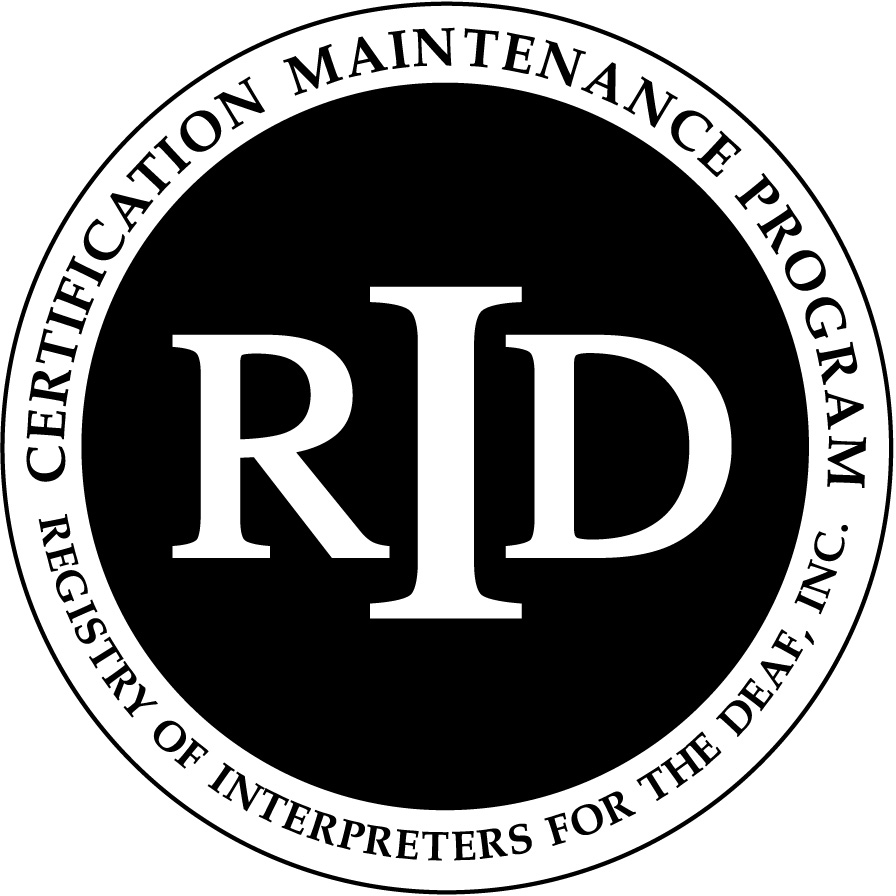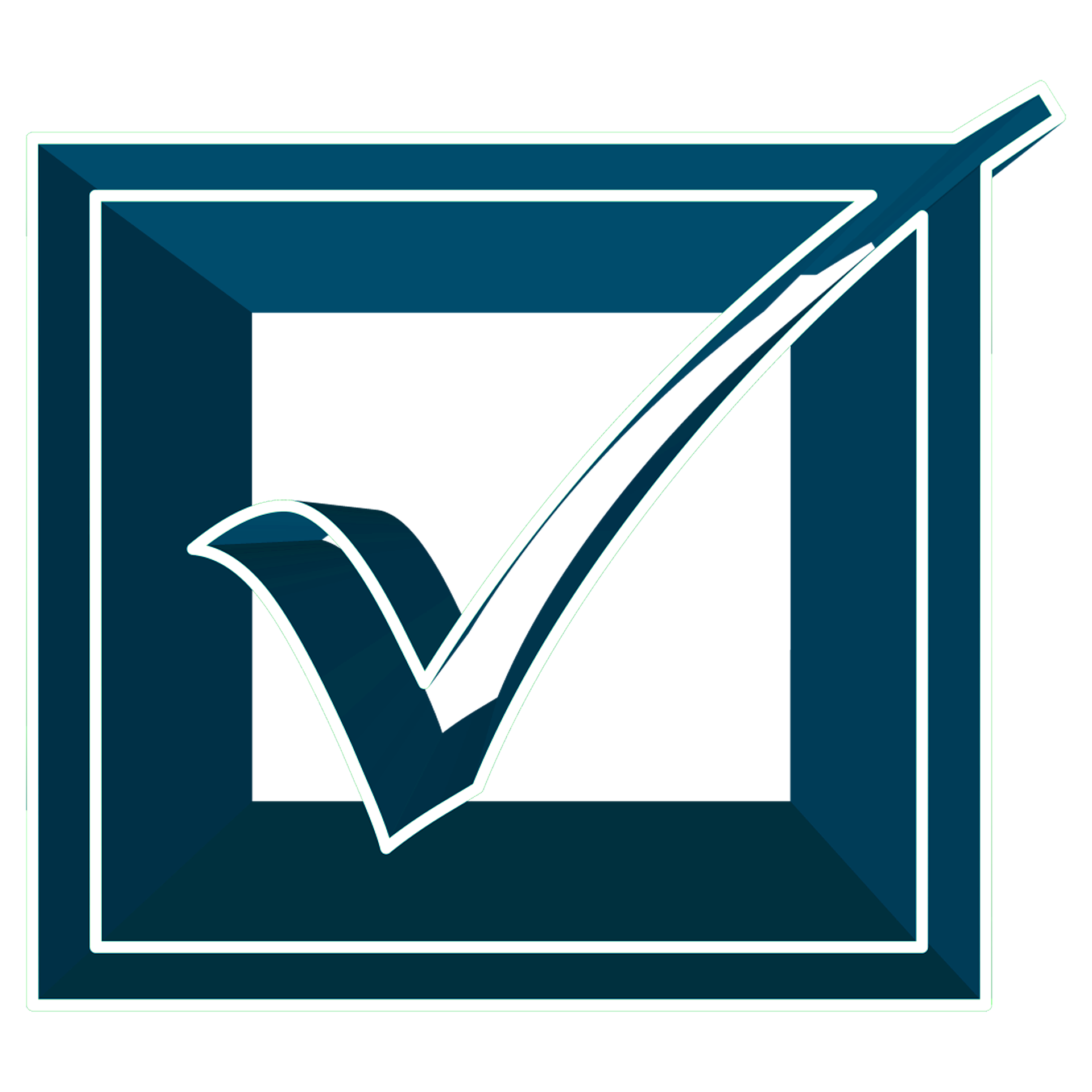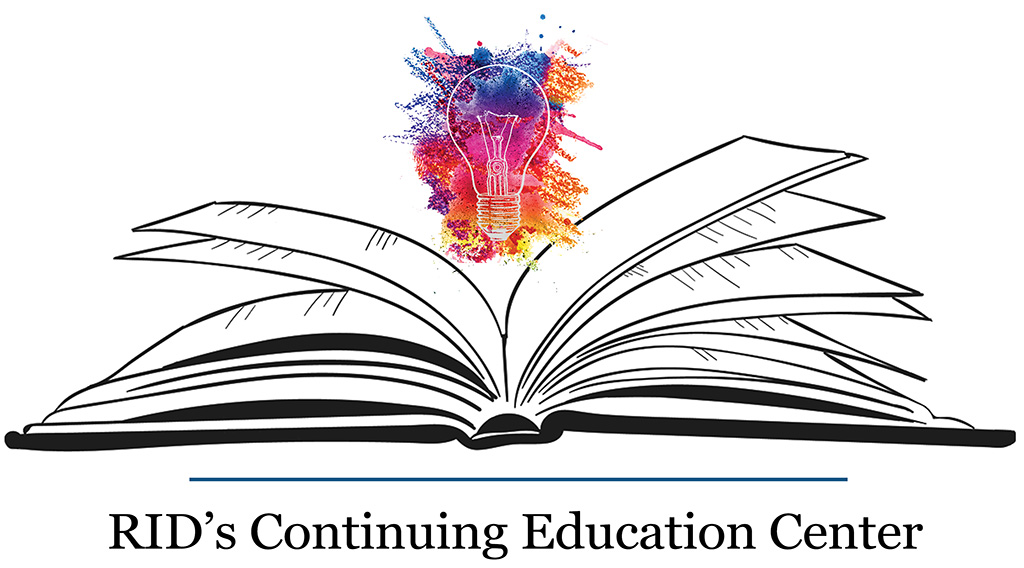
BLeGIT Pride Webinar Series
-
Register
- Member - $75
This webinar series includes four webinars that are worth 0.8 PS PPO CEUs. Webinars do not need to be completed in any particular order. The included webinars are:
Protactile and Black & Brown Trans-Queerness: Reducing Antagonisms in Our Work
HomoABCedario: The Challenges with Spanish LGBTQ+'s Vocabulary and ASL
Beauty and the Butch: The Lesbian Interpreter
Challenges to LGBTQ Liberation: The Trump Era and Beyond
-
Includes Credits Recorded On: 06/09/2020
This webinar is 0.2 CEUs in the category of Professional Studies (PS) PPO and is presented at the Little/None Knowledge level. This webinar will Expand awareness on QPOC DB/Protactile users needs and the antagonism they experience.
This webinar is 0.2 CEUs in the category of Professional Studies (PS) PPO and is presented at the Little/None Knowledge level. This webinar will Expand awareness on QPOC DB/Protactile users needs and the antagonism they experience.

 Requests for reasonable accommodations can be made by emailing webinars@rid.org
Requests for reasonable accommodations can be made by emailing webinars@rid.org Refund and Cancellation Policy: No refunds will be issued for cancellations
Refund and Cancellation Policy: No refunds will be issued for cancellations This webinar will be recorded and will be available for future viewing by RID members
This webinar will be recorded and will be available for future viewing by RID membersRID is providing this workshop as an opportunity for safe, respectful learning and will not permit harassment, discrimination or horizontal violence based on another's comments, questions, schema, race, color, religion, gender, gender expression, age, national origin, disability, marital status, sexual orientation or any other protected class.
At the end of webinar participants will be able:
To understand and identify some people who harm may not realize that harm (oppressing) is not always intentional
To identify and utilize fundamental skills to question their own bias of multiple identities and cultural aspect of Deaf Trans/Non-Binary Folks of Color on evaluation
To identify some ideas on developing their understanding of the function of power and control across Gender Identity, Race and Racialized Blindness
To identify and self- recognize the harm of cultural-blaming (intentional and unintentional) by managing their bias and assumptions when learning working with DeafBlind Queer of Color
To understand and recognize the importance of all of this and incorporate accountability in ethical interpretation work

Najma Johnson
Executive Director
Najma Johnson is a Black PanQueer DeafBlind protactile user, community educator and current Executive Director of DAWN. DAWN is a transformative justice organization based in DC that supports DeafBlind, DeafDisabled, Deaf, Hard of Hearing, Late Deafened survivors of sexual, power based violence and human trafficking. They have a master's in mental health counseling and have worked for the last 17 years to reduce violence in all the communities where they exist.
-
Includes Credits Recorded On: 06/16/2020
This webinar is 0.2 CEUs in the category of Professional Studies (PS) PPO and is presented at the Little/None Knowledge level. When we are talking about the LGBTQ+ vocabulary in the USA we all know that it is as diverse as its members. Imagine now how difficult it could be to manage and work with a LGBTQ+ vocabulary in a language that is used as a main formal language in over 20+ countries ALL AROUND THE WORLD. What would be the challenges that interpreters might face at work? What tools, techniques or guides can be used by the Spanish/English/ASL interpreters? How can the interpreters recognize if the word is an argot, a slang, a regional slang, offensive or a proper accepted term?
This webinar is 0.2 CEUs in the category of Professional Studies (PS) PPO and is presented at the Little/None Knowledge level.
When we are talking about the LGBTQ+ vocabulary in the USA we all know that it is as diverse as its members. Imagine now how difficult it could be to manage and work with a LGBTQ+ vocabulary in a language that is used as a main formal language in over 20+ countries ALL AROUND THE WORLD. What would be the challenges that interpreters might face at work? What tools, techniques or guides can be used by the Spanish/English/ASL interpreters? How can the interpreters recognize if the word is an argot, a slang, a regional slang, offensive or a proper accepted term?

 Requests for reasonable accommodations can be made by emailing webinars@rid.org
Requests for reasonable accommodations can be made by emailing webinars@rid.org Refund and Cancellation Policy: No refunds will be issued for cancellations
Refund and Cancellation Policy: No refunds will be issued for cancellations This webinar will be recorded and will be available for future viewing by RID members
This webinar will be recorded and will be available for future viewing by RID membersRID is providing this workshop as an opportunity for safe, respectful learning and will not permit harassment, discrimination or horizontal violence based on another's comments, questions, schema, race, color, religion, gender, gender expression, age, national origin, disability, marital status, sexual orientation or any other protected class.
By receiving a terminology list, the participant will identify the country of origin of each term. They will identify if it is a slang, formal word or if it is an offensive term. They will analyze and determine what is the correct correlation or translation into ASL of each of those terms. Participants will have hands-on experience with dialogues and scripts where they will put in practice the identification and selection of correct terms to be used during their interpretation.

Carmelo Falú-Rodríguez
Carmelo Falú-Rodríguez is a native puertorican who learn sign language at eleven years old from the deaf community in Puerto Rico and later received interpreting training at a Non-Profit organization known as Servicios Orientados al Sordo (S.O.S.). He attended the University of Puerto Rico, Río Piedras Campus where he took courses towards a BA. As Trilingüal interpreter he has worked in a vast ray of scenarios: Legal, Medical, Platform, Educational, Artistic, VRS in Puerto Rico and the USA. He served as Mano a Mano Board Member from 2007 - 2019 as Region Rep, Vice-President and later as a President. Also has been part of RID BLeGIT* Member Section Chair and Co-Chair as well.

Ricardo Lopez
Ricardo Lopez is a Deaf native from Puerto Rico. Graduated from Gallaudet University with a Master of Science in Educational Technology/Special Education, and a Master in School Library Media from the University of Maryland at College Park. His career path being a teacher for deaf students in Cincinnati, Ohio, a federal proposals officer at the Puerto Rico Federal Affairs Administration in Washington, DC, and a program analyst with the Office of Inspector General at the U.S. Department of Homeland Security. Mr. Lopez is currently employed at the Laurent Clerc National Deaf Education Center, a division of Gallaudet University. His community involvement includes being an advisory committee member on closed-captioning television with federal grants, past president of the National Literary Society of the Deaf, and guest speaker during Deaf History Month at the Martin Luther King, Jr. Memorial Public Library and the Library of Congress. Mr. Lopez is currently serving as chairperson of the Maryland Deaf Culture Digital Library.
-
Includes Credits Recorded On: 06/23/2020
This webinar is 0.2 CEUs in the category of Professional Studies (PS) PPO and is presented at the Little/None Knowledge level. This webinar will delve into the research done by Stephanie Ehrlich on lesbian interpreters. Specifically about the “coming out” to consumers experience. Topics of stress, appearance, coming out stages, the homosexual career, and future research will be covered. Participants will have an opportunity to compare their own experiences to the lives of those in the research.
This webinar is 0.2 CEUs in the category of Professional Studies (PS) PPO and is presented at the Little/None Knowledge level.
This webinar will delve into the research done by Stephanie Ehrlich on lesbian interpreters. Specifically about the “coming out” to consumers experience. Topics of stress, appearance, coming out stages, the homosexual career, and future research will be covered. Participants will have an opportunity to compare their own experiences to the lives of those in the research.

 Requests for reasonable accommodations can be made by emailing webinars@rid.org
Requests for reasonable accommodations can be made by emailing webinars@rid.org Refund and Cancellation Policy: No refunds will be issued for cancellations
Refund and Cancellation Policy: No refunds will be issued for cancellations This webinar will be recorded and will be available for future viewing by RID members
This webinar will be recorded and will be available for future viewing by RID membersRID is providing this workshop as an opportunity for safe, respectful learning and will not permit harassment, discrimination or horizontal violence based on another's comments, questions, schema, race, color, religion, gender, gender expression, age, national origin, disability, marital status, sexual orientation or any other protected class.
At the end of the webinar participants will be able to
1. Identify where they are within the Cass model.
2. Explain their experiences at different stages of the Cass model.
3. Compare and contrast their own experiences to the research data.
4. Identify how coming out to consumers impacts their stress levels.
5. Understand and express personal investment in the group norms for the training.
Participant will be able to connect with why group norms are important for the dynamic of the training. Hear how diverse the group’s experience with LGBTQ people and identity are. To provide an opportunity for participants to empathetically connect and reflect on the experience of having (or not having) privilege.

Stephanie Ehrlich
Ed: K-12, M.A.
Stephanie Ehrlich, Ed: K-12, M.A. in Interpreting Studies with an emphasis in Teaching from Western Oregon University. Her thesis was written on lesbian interpreters and can be found at https://digitalcommons.wou.edu... For her internship, she taught a workshop titled “LGBTQ 101: Being a Froot Loop in a World of Cheerios”. Stephanie received her B.S. in an Interpreter Training Program at Troy University with Magna Cum Laude honors. She did her educational interpreter internship with Wichita State University and her community interpreter internship with Florida State Mental Health Hospital. She is currently working as a staff interpreter at Unified School District 261 and has been in that capacity for the past ten years. She also has been working as a Video Relay interpreter for almost four years.
-
Includes Credits Recorded On: 06/30/2020
This webinar is 0.2 CEUs in the category of Professional Studies (PS) PPO and is presented at the Little/None Knowledge level. The landmark ruling in favor of marriage equality in 2015 marked what many thought was the penultimate victory for LGBTQ people in the U.S. But two judicial appointees later from the current presidency, it is a new court. The upcoming ruling on non-discrimination protections for LGBTQ people will be instructive in what advocates and allies can expect from the Supreme Court in future cases of equality. The policies being enacted and decisions made now will have generational impacts on previous LGBTQ advancements. LGBTQ Americans are vulnerable and uncertain about rights that were once protected and secured and that now have been eroded. Come to learn the latest about targeted anti-LGBTQ efforts and what can be done.
This webinar is 0.2 CEUs in the category of Professional Studies (PS) PPO and is presented at the Little/None Knowledge level.
The landmark ruling in favor of marriage equality in 2015 marked what many thought was the penultimate victory for LGBTQ people in the U.S. But two judicial appointees later from the current presidency, it is a new court. The upcoming ruling on non-discrimination protections for LGBTQ people will be instructive in what advocates and allies can expect from the Supreme Court in future cases of equality. The policies being enacted and decisions made now will have generational impacts on previous LGBTQ advancements. LGBTQ Americans are vulnerable and uncertain about rights that were once protected and secured and that now have been eroded. Come to learn the latest about targeted anti-LGBTQ efforts and what can be done.

 Requests for reasonable accommodations can be made by emailing webinars@rid.org
Requests for reasonable accommodations can be made by emailing webinars@rid.org Refund and Cancellation Policy: No refunds will be issued for cancellations
Refund and Cancellation Policy: No refunds will be issued for cancellations This webinar will be recorded and will be available for future viewing by RID members
This webinar will be recorded and will be available for future viewing by RID membersRID is providing this workshop as an opportunity for safe, respectful learning and will not permit harassment, discrimination or horizontal violence based on another's comments, questions, schema, race, color, religion, gender, gender expression, age, national origin, disability, marital status, sexual orientation or any other protected class.
At the end of the webinar participants will be able to
Compare and contrast rights (federal vs state) in regard to relationship recognition in the current laws.
Explain key challenges for same-sex couples in accessing rights, benefits and services.
Devise ally behaviors to support equality in the laws.
Differentiate three key issues that potentially disempower same-sex couples from having equality in the laws.

CM Hall
Ed.M., NIC Advanced, EIPA Ed: K-12
CM Hall, Ed.M., NIC Advanced, EIPA Ed: K-12
Pronouns: She/Her/Hers/TheyCM has long been a community activist, committed to equity and social justice.
Professionally, CM manages dual careers in both the field of interpreting grant administration and teaching. CM has taught LGBTQ Studies at Western Oregon University since 2012. She is a nationally‐certified sign language interpreter, having earned a Bachelor's in Interpreting from Western Oregon University and a Master's in Education with an emphasis in LGBTQ and Gender Studies from Oregon State University.
CM has worked as a fundraiser and political strategist for queer nonprofit organizations and campaigns, and also leads social justice‐themed and fundraising how‐to workshops. She produces an annual Coming Out Monologues storytelling event in Portland. CM has been recognized for her advocacy work by Basic Rights Oregon, Pride Northwest, and the Gay & Lesbian Archives of the Pacific Northwest, Campus Pride, the Human Rights Campaign, and the Oregon Association of the Deaf, the Oregon Deaf & Hard of Hearing Advisory Committee, and the Registry of Interpreters for the Deaf, and Western Oregon University’s Stonewall Center.
CM is also the first out queer person elected in 2018 to the Newport, Oregon City Council.
